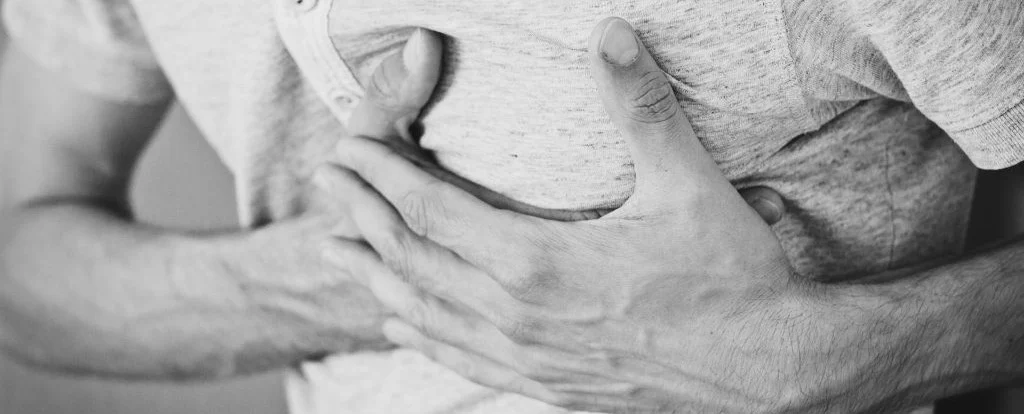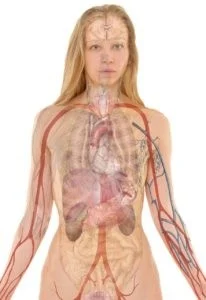Heart complaints due to stress is common. Yet there is a lot of ambiguity. Sometimes people have these complaints for years without being recognised. People often do not know how to recognise the complaints associated with these heart complaints. It is important to recognise these complaints in time and to know what you can do about heart complaints due to stress
In this article we show when heart complaints become dangerous due to stress, how you can recognizs these heart complaints and what you can do about heart complaints due to stress.
Heart and stress symptoms
Everyone feels stress in different ways and reacts differently. How much stress you experience and your response to it determines the risk of a wide range of health problems . That is why it is very important to know what you can do about stress. When exposed to excessive stress, it can contribute to a variety of health problems, from high blood pressure or hypertension to asthma and ulcers, as well as irritable bowel syndrome.
Cardiovascular disease is the leading cause of death worldwide. Stress can be factors of influence that increase the risk of cardiovascular disease: high blood pressure, cholesterol, smoking, lack of exercise and overeating. In response to stress, you may experience headaches , backaches or stomach complaints. Stress can also lower your energy, cause insomnia and make you feel moody, forgetful and uncontrollable.
What happens in a stressful situation?
A stressful situation causes a series of events. Your body releases adrenaline , a hormone that temporarily accelerates your breathing and heart rate and raises your blood pressure. These responses prepare you to deal with the situation: the fight-or-flight response.
When stress is constant, your body stays in high gear for days or even weeks. Chronic stress can cause some people to drink too much alcohol , which can cause their blood pressure to rise and damage the artery walls.

Heart stabbing through stress
Most people feel anxious, anxious or nervous from time to time and this is normal. They are typical reactions to atypical moments in everyday life. Chest pain is sometimes a symptom of anxiety and stress. It feels like sharp pains in your heart and may be cause for concern because of the possible connection to a heart attack and other heart conditions.
Anxiety and stress symptoms differ from person to person and can look very different on some days. They present themselves in different ways, which makes it difficult to detect or understand the symptoms. Symptoms include:
- A sharp, stabbing pain in your heart
- Persistent chest pain
- An unusual twitching or spasm in the chest
- Burning, numb or dull pain
- Stinging pressure
- Chest tension or tightness
Causes of heart pains due to stress
Stress can be caused by a physical or emotional change, or by a change in your environment that requires you to adapt or respond. Things that make you feel stressed are called “stressors.” Stressors can be minor problems, major lifestyle changes or a combination of both. Identifying stressors in your life and the stress they cause are essential to managing stress.
Some common stressors are:
- Illness, personally or from a family member or friend.
- Death of a friend or loved one.
- Problems in a personal relationship.
- Overload at work.
- Pregnancy .
- Daily worries.
- Financial concerns.
Palpitations due to stress
The human heart beats 2.5 billion times in the course of normal human life. You are rarely aware of this muscle in action, as it quietly winds blood through its chambers. But sometimes a heavy banging comes from the left side of your chest. It just means that you are nervous or excited. Or it could be a signal of atrial fibrillation.
There are four chambers in your heart: the right and left atria and ventricles. The upper chambers, the atria, receive blood that returns from your body and lungs. When the electrical system in the atria breaks down, it causes symptoms that feel like fluttering and sometimes pounding, which are also called palpitations. This irregular heartbeat is called atrial fibrillation.
Weird feeling in the heart region
Palpitations make you feel strange in the heart area, as if something undeniable is wrong in your chest. You may experience a mild sensation or you may suddenly realize that your heart has skipped a beat. It can seem as if something unreal happens in your body. As if you are training and you cannot breathe. But palpitations can also be subtle. They can feel like butterflies.
If you could see your heart at the time of your atrial fibrillation, that muscle may remind you more of a nervous rabbit than the strong, confident lion it normally is. The heart’s four chambers typically work 60 to 100 times per minute in smooth coordination to circulate blood through your body. The upper atria and the lower ventricles perform a ballet to squeeze efficiently for blood flow.
Shortness of breath and pain
In addition to palpitations or a strange feeling in the heart region, your atria can also send you other signals. These include shortness of breath and chest pain, as well as feeling tired , dizzy, fainting, a feeling of weakness and confusion. If you experience these symptoms, contact your doctor as soon as possible.
Stress and heart complaints
Stress is a normal part of life. But when it becomes uncontrollable, stress can lead to emotional, psychological, and even physical problems , including heart disease, high blood pressure, chest pain, or irregular heartbeat.
Medical researchers are not yet sure how stress increases the risk of heart disease. Stress itself can be a risk factor, or high levels of stress can worsen other risk factors (such as high cholesterol or high blood pressure). For example, if you are under stress, your blood pressure will rise, you may overeat, exercise less, and are more likely to smoke.
Stress can be a risk factor for heart disease because chronic stress exposes your body to unhealthy, persistently elevated levels of stress hormones such as adrenaline and cortisol . Studies also link stress to changes in the way your blood clots, which increases the risk of a heart attack.

Fatigued and palpitations
An irregular pulse, a restless feeling in the chest, often people describe their palpitations as “my heart stops”. A feeling of a strong pulse through the chest, head and neck can also be described as palpitations.
Sometimes palpitations can be observed in unusual ways, including a general feeling of being unwell. In rare cases, palpitations are associated with dizziness or even loss of consciousness. Often, palpitations occur without a clear precipitating factor, although fatigue, stress and lack of sleep also cause or worsen palpitations.
Fatigue, feeling tired all the time, and struggling with everyday activities, such as shopping, climbing stairs, running errands, or walking. That could indicate that the heart is unable to pump enough blood to meet the needs of your body tissues. If in doubt, always consult your doctor.
> Also read: fighting fatigue
Waking up with a rapidly beating heart
Imagine stretching out in the morning, getting up from your bed and suddenly realising that you can feel your heart pounding in your chest. It is frightening to wake up, with a rapidly beating heart, skipping a beat or feeling like it is fluttering.
Chances are you’ll immediately try to figure out what’s causing the fast heartbeat, and a possible cause could be obstructive sleep apnea. Sleep apnea is a condition you may not know you have, but it can still cause serious heart problems. Research has shown that sleep apnea can increase the risk of developing one common heart condition: atrial fibrillation.
Too fast or abrupt awakening process
Sometimes waking up with a fast beating heart can also be caused by an awakening process that is too fast or too abrupt. A relatively fast heart rate means a rapid increase in the normal resting heart rate during the awakening state. During sleep, the resting heart rate in the non-REM phase is much lower.
An absolutely fast heartbeat includes an abrupt increase to a level that is not physiologically acceptable, for example 60-100 BPM. It could be a sign of an underlying disease. A non-physiological heartbeat can be caused by problems in the heart itself or elsewhere in the body.

Causes of a rapidly beating heart
Other reasons that can make the heart beat too fast include:
- Tension
- Fear
- Depression
- Sinus arrhythmia paroxysms
- You wake up before using a new dose of beta blockers
- Some undiscovered heart problems
- Thyroid problems
- Physical overload the previous day
- A weakened heart
- Problems with adrenaline and norepinephrine
- Catecholamines (chemical compounds derived from the amino acid
tyrosine) - Increased temperature
- Kidney disease
- Low water levels in the body.
Slow heart rate from stress
Almost everyone who is in fear suffers from a rapid heartbeat at some point. A fast heartbeat is a very common anxiety symptom, and one that in severe cases leaves many people concerned about their heart health. One of the first steps towards treating anxiety is learning not to overreact to an increased heart rate, because the stress of overreacting can make the problem worse.
What many may not realize is that anxiety can also slow the heart rate. It is not so common, but it does occur. The reasons for a slow heart rate in the case of anxiety are not fully understood. However, here are some possible causes:

Fatigue
Anxiety can cause significant fatigue . Living with fear can be very difficult and often drains energy from body and mind. For this reason, people with anxiety may experience a resting heart rate that is lower than normal.
Too little excercise.
Sometimes anxious people don’t exercise enough. This can be a result of fatigue or – in the case of social anxiety – a decreased desire to leave the house and get in touch with others. Being inactive for a long time, however, can lead to a lower resting heart rate, as the body adapts to such low overall activity.
Incorrect observation.
Sometimes people mistakenly interpret their heart rate as slowed down. They have no irregular heartbeat at all and simply (because of their fear) tend to think that something is not right.
Medical conditions.
There are some medical conditions that may also be related to a lowered heart rate. Talk to your doctor about hypothyroidism, for example. Hypothyroidism is a condition that often leads to anxiety and panic attacks and can be related to a low heart rate.
Heart pain
Heart pain can be caused by many different conditions. In some cases, it can be a sign of a life-threatening heart condition. In other cases, pain in the heart region can result from a problem with other organs, such as your lungs.
Even the smallest sting of pain in the heart area should always be checked to make sure it is not a sign of a serious health condition. This pain can feel different for everyone and can be described as sharp, dull, painful, crushing or burning. It can range from very mild to severe, can come and go, and can be worse during or after activity. Heart pain can also spread from your chest to your neck, jaw, arms, shoulders, or back .
Characteristics pain in the heart area
Heart pain is a common symptom of many heart problems, including:
- Coronary artery disease, which occurs when cholesterol increasingly clings to the walls of your blood vessels . This can narrow or even completely block your arteries, increasing your risk of heart attack or stroke.
- Heart attack, which occurs when blood flows to your heart and the cells cannot pump the blood and oxygen they need. If you think you or someone else is having a heart attack, get medical help right away.
- Cardiac arrhythmias, in which your heart beats too fast, too slow, or irregularly. Heart valve problems can occur when your heart valves narrow or leak. Aortic dissection is a potentially life-threatening condition that occurs when the wall of your aorta ruptures. Sudden, sharp pain in the heart region is a common symptom of this condition.
Trembling and sweating from palpitations
Causes of palpitations include certain medicines, hormonal changes, arrhythmias and other medical conditions. Heavy training, insufficient sleep , drinks with caffeine, such as coffee, tea and energy drinks, alcohol, smoking, illegal drugs (cocaine, heroin, amphetamines, ecstasy and cannabis) and spicy foods can also cause palpitations.
Palpitations are also often caused by emotions or psychological problems, such as excitement or nervousness, stress or anxiety and panic attacks. Breathing exercises can help when you are stressed, anxious, or panicky.
You do not need to consult your doctor if the palpitations pass quickly and only occur occasionally. They are not likely to be caused by a serious problem and are not likely to require treatment. But it is definitely a good idea to contact your doctor if:
- the palpitations last a long time, do not get better or worse
- you have a history of heart problems
- you’re worried about the palpitations.

Heart complaints due to stress or a more serious problem?
When is a stabbing feeling in the heart serious? That dull, burning sensation in your chest doesn’t seem to go away, and it even feels like it’s getting worse. Is it a heart attack or something else?
It’s an annoying question, one that millions of people – and their doctors – face every year. A stabbing sensation in the heart – in addition to heart attack – can arise from dozens of conditions, from pancreatitis to pneumonia or panic attack .
Of the millions of people who report to a hospital’s emergency departments each year with a stabbing feeling in the heart, only one is related to a heart attack or a warning that a heart attack may occur soon. A few have another potentially life-threatening problem, such as pulmonary embolism (a blood clot in the lungs) or aortic dissection (a tear in the inner layer of the aorta).
Some experience “normal” angina , which occurs when a part of the heart does not get as much oxygenated blood as it needs during periods of physical exertion or emotional stress. Most of them, however, had a condition unrelated to the heart or blood vessels.
When to see a doctor when you have heart complaints?
A stabbing sensation in the heart is just one of the possible signs of an impending heart attack. In the following cases you should definitely call in the doctor:
Uncomfortable pressure
Uncomfortable pressure, squeezing, fullness, burning, tightness, or pain in the center of the chest
Pain
Pain, numbness, squeezing, stimulation, or other uncomfortable feelings
in one or both arms, the back, neck, jaw, or stomach
Physical complaints
- Shortness of breath
- Sudden nausea or vomiting
- Dizziness
- Unusual fatigue
- Cold sweat
- Sudden heaviness, weakness, or pain in one or both arms.

About Milltain
Milltain supports, with a team of experienced trainers, organizations in the prevention of stress and the (re) finding of work happiness in the workplace. Our training courses are aimed at managers within companies. A burnout quickly costs the organization € 70,000.
In addition to financial suffering, human suffering is great. Not only for the employee but also for close colleagues who have to deal with the blows. Before you know it you are in a negative vicious circle.
Do you want an effective approach to long-term absenteeism and increasing work pleasure? (instead of extinguishing continuous fires).






